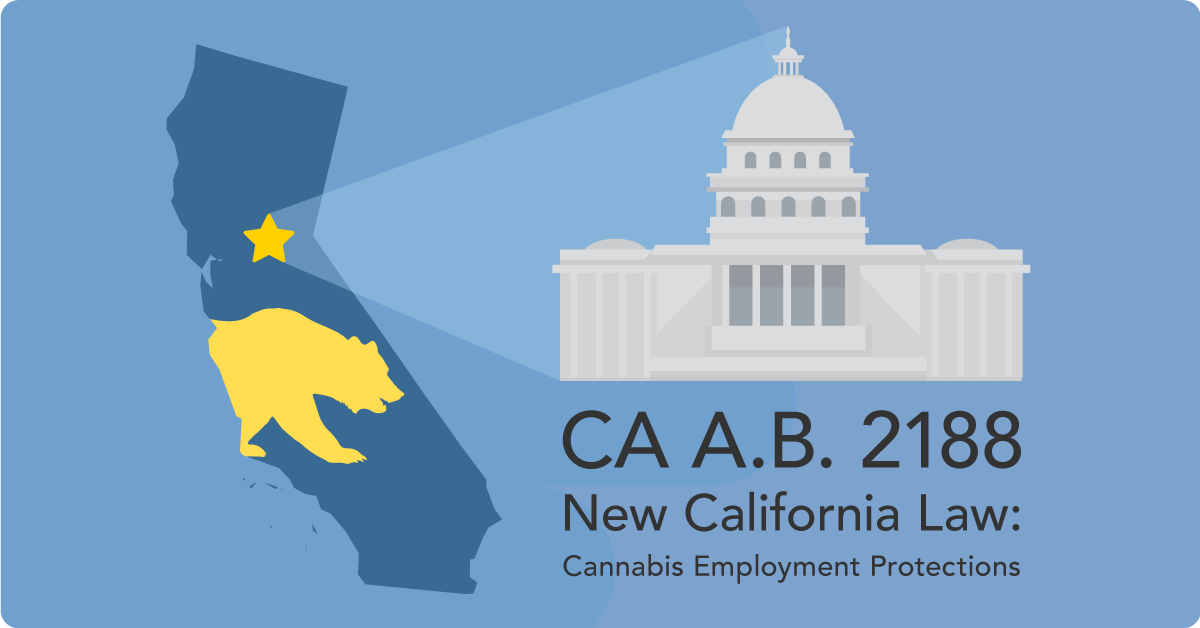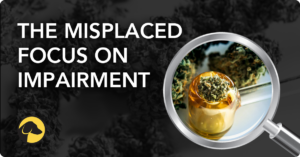
California Passes Bill Protecting Employees’ Off-Duty Marijuana Use
California employers will soon be barred from discharging employees or refusing to hire individuals based on their off-duty use of marijuana under a new bill signed by Governor Gavin Newsom. The California legislature first passed Assembly Bill (A.B.) 2188, which will prohibit employers from discriminating against “a person in hiring, termination, or any term or condition of employment” based on “the person’s use of cannabis off the job and away from the workplace.” Governor Newsom signed the bill into law in September 2022; it will take effect on January 1, 2024.
A.B. 2188—which amends the California Fair Employment and Housing Act (FEHA), the state’s employment antidiscrimination law—will further make it an unlawful employment practice to discriminate against an individual based on “an employer-required drug screening test” that detects the presence of “non-psychoactive cannabis metabolites in their hair, blood, urine, or other bodily fluids.”
While the recreational use of marijuana, or cannabis, has been legal in the Golden State since 2016 and medical marijuana has been legal since 1996, the bill will be the first law in the state to specifically provide workplace protections for recreational and medical marijuana users.
However, A.B. 2188 will still allow employers to restrict marijuana use on the job. The bill will not allow employees “to possess, to be impaired by, or to use, cannabis on the job.” The bill also states that nothing contained in it “affects the rights or obligations of an employer to maintain a drug- and alcohol-free workplace” or “any other rights or obligations of an employer specified by federal law or regulation.”
Additionally, the bill includes carve-outs for employees in “the building and construction trades” and for applicants or employees in federal jobs requiring clearance from the U.S. Department of Defense.
Some business groups opposed A.B. 2188 over concerns that it will limit or eliminate drug testing for marijuana in the workplace and make it more difficult to discipline for reasonable suspicion of on-the-job use of cannabis. These concerns are heightened due to questions over the feasibility, costs, and reliability of “impairment” tests compared to traditional drug screens for the drug’s metabolites.
California was the first state to legalize medical marijuana with Proposition 215 in 1996, but that law did not provide workplace protections for use. Surprisingly, even with courts around the country becoming more employee-friendly with cannabis issues, California has remained more employer-friendly in its court decisions. In 2008, the Supreme Court of California ruled that a disabled individual who used medical marijuana was not protected under the FEHA. In 2016, the United States District Court for the Eastern District of California issued a similar ruling.
In 2016, California voters approved Proposition 64 to legalize recreational marijuana. That proposition purported to keep intact the rights of public and private employers to enforce workplace anti-drug policies. Meanwhile, courts in at least two other states, Nevada and Colorado, have found that workplace protections for lawful, off-duty conduct generally do not apply to cannabis use because cannabis is still classified as a Schedule I controlled substance under the federal Controlled Substances Act.
KEY TAKEAWAYS
A.B. 2188 will make California the latest in a growing list of states that have legalized cannabis to enact workplace protections for its use outside work. Still, the bill will permit employers to continue to enforce drug- and alcohol-free workplace policies and continue to test for marijuana so long as the tests are not focused on “non-psychoactive” chemicals in the body. Nonetheless, implementing such tests presents a challenge for employers and creates questions about an employer’s ability to enforce workplace policies and disciplinary actions. California employers may want to review and update their workplace drug policies and screening protocols.
Ogletree Deakins and Hound Labs will keep monitoring developments concerning the legislation and continue to post updates.
This article is reprinted with permission from Ogletree Deakins, a labor and employment law firm. This information should not be relied upon as legal advice.

ABOUT THE AUTHOR
Vince Verde is the head of the Trial Practice Group at Ogletree Deakins. He is a litigator and former prosecutor with extensive jury and non-jury trial experience. He represents employers in state and federal courts in single and multi-plaintiff actions. He has extensive experience in all areas of employment law.

February 16, 2023
By VINCE VERDE
Ogletree Deakins
Share












